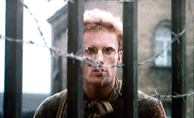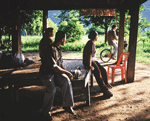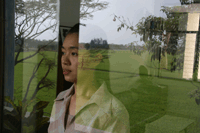Landscape After the Battle opens to the narratively silent symphony of a concentration camp liberation, as haggard yet jubilant prisoners run out into the snow-covered open field, break the windows of the internment barracks, impulsively undress and toss their degrading uniforms onto a blazing bonfire, and rejoice at the arrival of the Allied soldiers. A […]
Category: National Cinema
Uncle Boonmee Who Can Recall His Past Lives, 2010
Like Mija in Lee Chang-dong’s Poetry, the eponymous, ailing protagonist of Apichatpong Weerasethakul’s Uncle Boonmee Who Can Recall His Past Lives is similarly haunted by memory and mortality. Retiring to a secluded country estate to live out his final days in the company of concerned family and friends (as well as a devoted Laotian illegal […]
Syndromes and a Century, 2006
In Syndromes and a Century, Apichatpong Weerasethakul revisits the bifurcated structure of his earlier feature films, Blissfully Yours and Tropical Malady as well as the fragmented, dissociative visual and aural images of his experimental short, The Relentless Fury of the Pounding Waves to create a languid, lyrical, organic, and contemplative exposition on the malleability and […]
The Ball at Anjo House, 1947
Filmed during American postwar occupation, The Ball at Anjo House is a curiously atypical Japanese film that hews eerily closer to the privileged, dysfunctional families and moral abandon of The Magnificent Ambersons or a Douglas Sirk melodrama than a Shochiku middle-class shomin-geki: the proud family patriarch, Tadahiko (Osamu Takizawa) who continues to harbor the illusion […]



